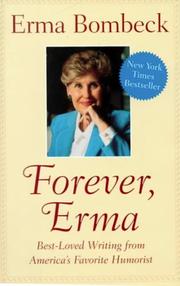View my disclosure statement for more information on how I choose books to review.
If you’ve never checked out the Stuff Christians Like blog, you’re seriously missing out. Every day Jonathan Acuff (or a wickedly funny guest blogger) posts a satirical piece about some aspect of modern Christian culture.
Acuff is certainly not the only blogger who pokes fun at Christian culture. In fact, such sites abound. But Acuff’s “Stuff Christians Like” manages to set itself apart from other sites in that it’s not cynical. Acuff isn’t giving up on Christians or on the church. He’s not setting himself up as a holier-than-thou. He’s just making observations, in love, about our unique culture (which is also HIS unique culture.)
I don’t usually buy this sort of book. Actually, I try not to buy books if at all possible. I borrow hundreds of books from my library each year, and limit my purchasing to books that I’ve already read and know I want to read again and to library book sale items (bought at the going rate of $0.50-1.00)
But I especially don’t buy this kind of book–little humorous essays that you read once and laugh and then put away, never to pick the book up again.
I did, however, get the downloadable audiobook–and am thoroughly impressed.
Acuff does his own reading, which is genius on quite a few levels. Acuff is a pretty smooth reader–with pauses where they’re needed and proper inflections at varying points. But what’s more, Acuff doesn’t just read. Sure–he reads–but he also sings, uses the occasional odd voice, and makes comments about the reading process. It makes for great hilarity.
The contents of this title are a mix of Stuff Christians Like (the website) classics and brand new humorous essays. Expect to hear about honeymoon sex, popcorn prayer personalities, and being the “token Christian” in your workplace.
Stuff Christians Like would make a great gift book for anyone who grew up in the Christian subculture of the 80s, 90s, and today (fantastic-now I sound like a local radio station “playing your favorites from the 80s, 90s, and today!”)If you’ve been on a church missions trip or had your child’s number appear on a screen during a worship service or given or received a tract instead of candy on Halloween, you’re going to be amused by this book.
The book version would make for good bathroom reading, I think–though nothing can beat this audio version. As an individual who is HIGHLY oriented toward the written word (I require subtitles in order to understand almost any movie), I generally don’t prefer audio books. But this isn’t so much of an audio book–it’s more like a four and a half hour long comedy track. I LOVED IT!
Rating: 4 stars
Category: Satirical Essays on Christian Culture
Synopsis: Jonathan Acuff pokes good-natured fun at Christian culture–in absolutely hilarious essays.
Recommendation: If you grew up in the Christian culture–or now belong to it–you’ll probably be nodding your head and laughing along. You’ll like it. If you aren’t a Christian and/or don’t have any familiarity with Christian culture, this isn’t going to make a lot of sense to you.


